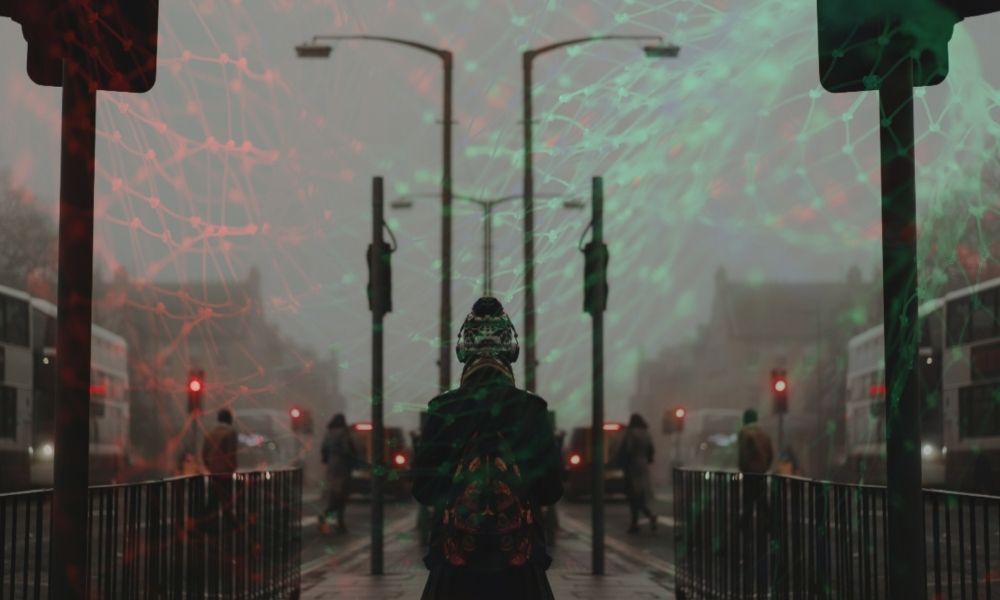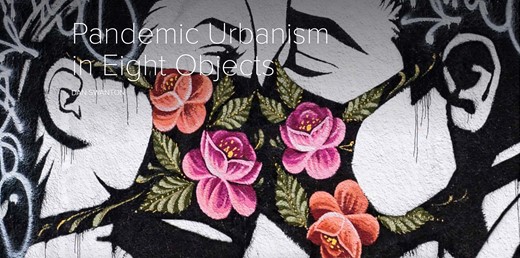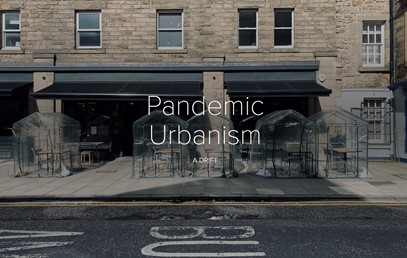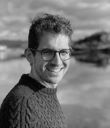
In this post, Dan Swanton Senior Lecturer in Human Geography and Degree Programmes Convener for the Geography Degrees in the School of GeoSciences, describes the development of a hybrid field course for Year 3 students on the Masters of Geography programme. This alternative approach opened up paths of growth and discovery, practices of participation and observation, and innovative ways of study in the field…
Field courses are a key part of the curriculum in Geography. They provide inspiring opportunities for experiential learning. They usually involve some kind of apprenticeship in learning the craft of doing geographical research. And residential field courses provide important moments for building a sense of community by helping forge students’ identities as geographers and their sense of belonging to Geography in Edinburgh.
This year we’ve had to rethink how we run field courses in Geography. Here I share what we’ve done in a course for Year 3 students on the MA Geography programme (the social sciences and humanities side of Geography) to replace courses that are usually based in Athens and Cape Town.
DIGITAL LEARNING AND WALKING
The alternative course blends digital learning and guided walks through Edinburgh. While field courses usually mean going away, bringing the design and pedagogy of field courses home has offered exciting opportunities for us to learn and teach about Edinburgh and its fascinating – and troubling – geographies. The constraints of the pandemic have also forced us to act on conversations that we’ve had as a programme on how to make greater use of Edinburgh in our teaching. The disruption has also put a sharper focus on discussions about how we justify the carbon footprint of field courses in the future.
Through a focus on Edinburgh and its landscapes, the alternative field course already met one of the key principles of field teaching in Geography, namely a close engagement with place. Field courses place an emphasis on experiential learning where ideas, theories and methods are applied in particular places. In most years, learning takes place in locations that are unfamiliar to our students, but this year we’ve taken the opportunity to unsettle what might have become familiar in Edinburgh. We’re introducing our students to new stories about Edinburgh and encouraging them to develop new ways of seeing a place they may feel they know well. Over the course of the semester the students will learn about decolonising urban landscapes, examine life in the pandemic city, reflect on the stories of the shoreline, explore how urban space changes and seek out the geographies of protest along the Royal Mile.

https://spark.adobe.com/page/6o8l6xaQLdF4d/
In the design of the course we were keen to get students away from screens as much as possible and provide them with opportunities to work with in small groups. Field courses can look a bit like academic tourism, with lecturers parading through cities with large groups of students trailing behind. Clearly replicating this larger group teaching around Edinburgh at the moment would have been problematic. So the students are working in groups of 5 or 6. Each week recorded lecture materials and a walking guide are shared with the students. The students work through the recorded materials before meeting and doing the walks and fieldwork independently using the guides we’ve developed. The walking guides include routes, prompts, archival materials and materials we’ve recorded and so double as a virtual walk for any students who are shielding, self-isolating or not on campus.

https://spark.adobe.com/page/8QYy0xvIKRQUi/
We’ve placed a strong emphasis on the style of teaching. In particular we have tried to shift the students’ expectation of – and comfort with – a transmission model of teaching. Following anthropologist Tim Ingold’s arguments that transmission distorts the purpose and meaning of education, we’ve emphasised that transmission is not the way in which people ordinarily come to know what they do. Ingold (2018, 2) suggests that ‘education is a practice of attention, not transmission’. And so in this course we’ve looked to introduce cultivating the students’ habits and practices of attention as human geographers. This means we’ve focused on using learning material and walks to lead out and give the student opportunities to experience, become attentive to, and to respond to the world. This has included some fantastic reflections and prompts on fieldcraft produced by tutors and demonstrators based on their research. In the lectures and guides we’ve used questions and prompts to encourage the students to reflect on the methods and techniques that they might adopt when doing the walks in order to construct their own geographical knowledge.
POSTCARDS ASSESSMENTS
We’ve also tried to build creativity into how we assess the students on this course. The assessment is a portfolio which includes six 500-word ‘postcards’ on each of the walks, and a 1000 word reflection on doing and designing fieldwork. The assessment is designed to encourage the students engagement with the material and to work consistently throughout the semester. The postcards also give the students space to be creative and to develop a a distinctive voice and new skills in written and visual communication. Each week the students are asked to use the postcard format to share something about the fieldwork they did during the walk, building up their research materials to develop arguments and reflections that engage with that week’s them and the significance of fieldwork for the construction of geographical knowledge.
Reference :
Ingold, T. (2018). Anthropology and/as Education. London: Routledge.
 Dan Swanton
Dan Swanton
Dan is a Senior Lecturer in Human Geography and Degree Programmes Convener for the Geography Degrees in the School of GeoSciences. He’s a Senior Fellow of the HEA and is particularly interested in the uses of creativity and play in learning, teaching and assessment; and ways of improving student engagement.
Twitter: @dswanton Instagram: #uoegeosciences


This is great! Thank you for sharing it with us. It also has a VERY different carbon footprint.